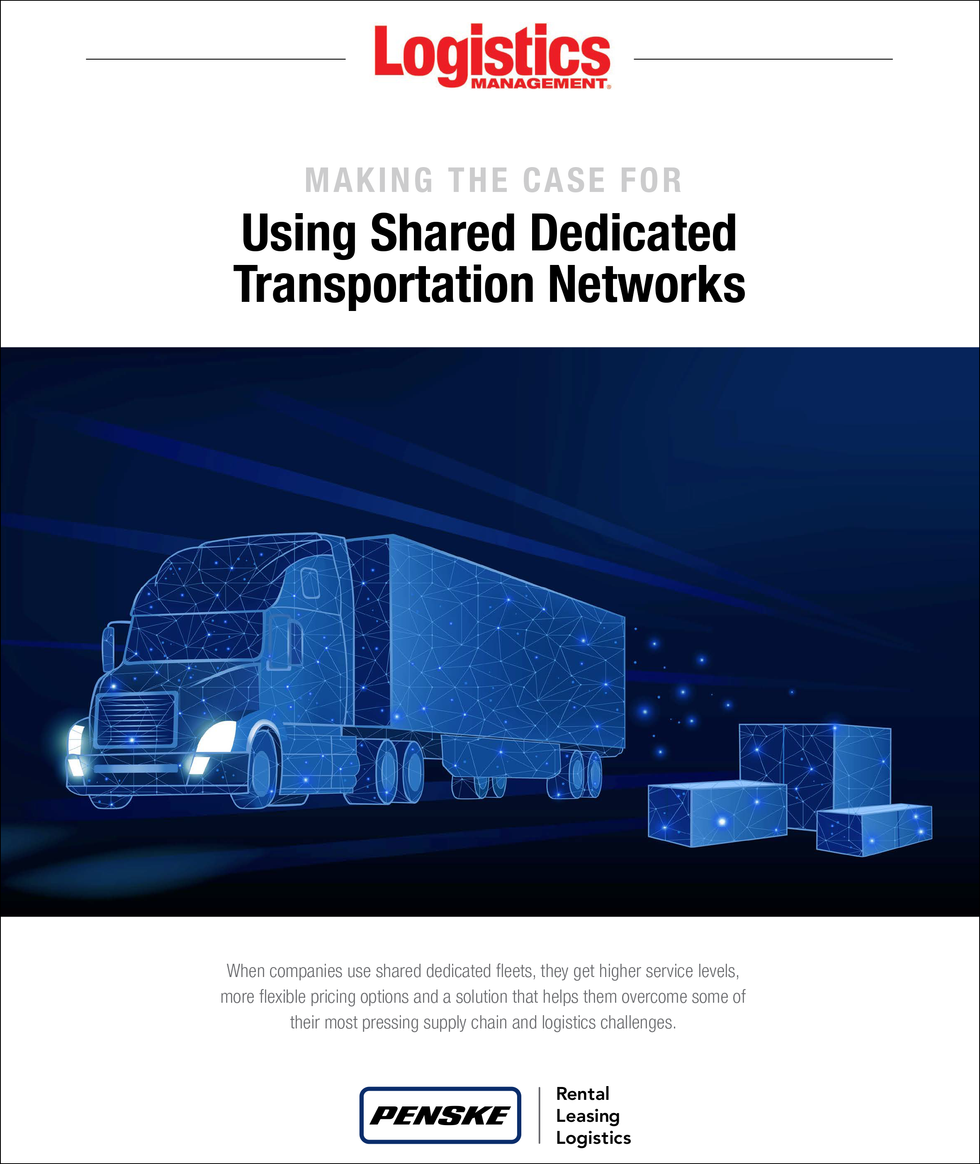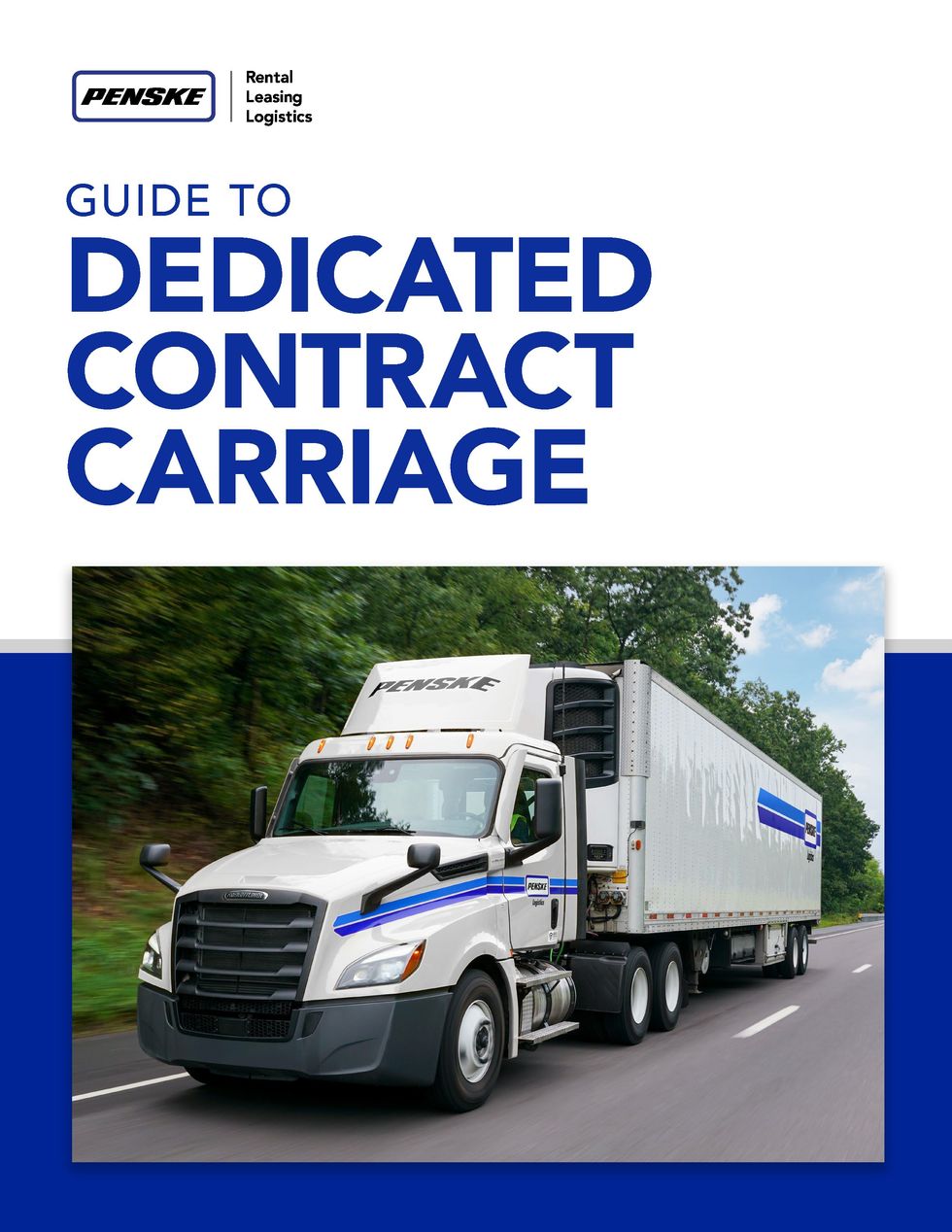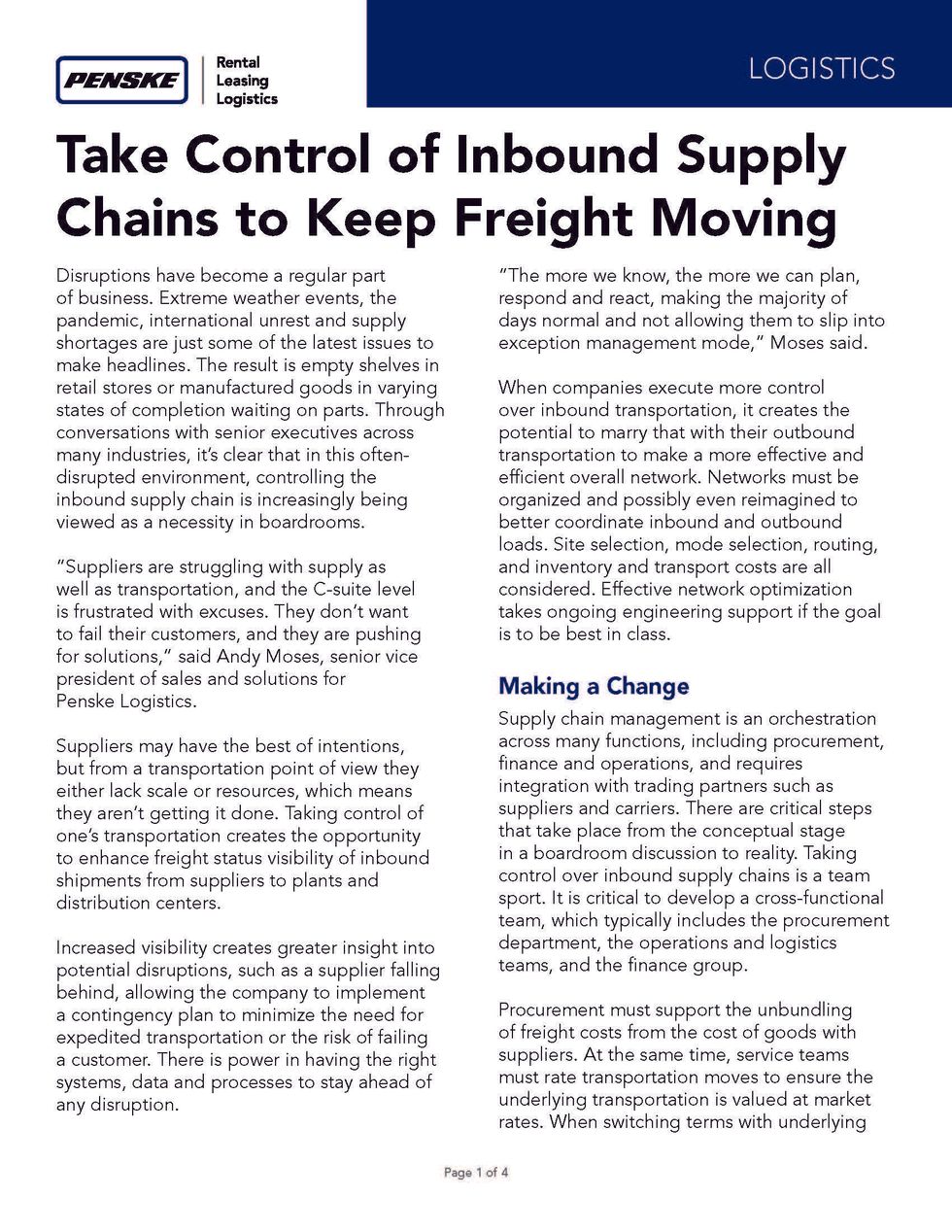Emissions in the Supply Chain: Tracking Scopes 1, 2 and 3
The supply chain provides significant opportunities to improve a company’s sustainability efforts. The Environmental Protection Agency (EPA) estimates that more than 75% of an organization’s greenhouse gas (GHG) emissions stem from its supply chains, underscoring the significant opportunities for improvement.
Corporate responsibility, customer expectations and regulatory requirements have shippers examining their direct and indirect emissions, especially as they relate to logistics and transportation.
Types of Scope Emissions
There are three categories of GHG emissions: Scope 1, Scope 2 and Scope 3. Each scope represents a different source of emissions, ranging from emissions created as part of a direct operation to emissions from services and suppliers.
Scope 1 Emissions: Direct Emissions From Controlled Operations
Scope 1 emissions are direct GHG emissions from sources that a company owns or controls. For shippers, this includes emissions from company-owned vehicles and equipment. Emissions from warehouse operations, such as gas-powered forklifts, are also part of Scope 1.
Scope 2 Emissions: Indirect Emissions From Purchased Energy
Scope 2 emissions are indirect, deriving from an organization’s purchase of electricity. While these emissions happen at the energy provider’s site, they are tied to the company’s operations because they depend on the energy.
Scope 3 Emissions: Indirect Emissions From Upstream and Downstream Activities
Scope 3 emissions encompass all other indirect emissions in the company’s upstream and downstream value chain. This includes emissions associated with suppliers, transportation providers and end users. Scope 3 is often the largest and most complex to manage. However, because Scope 3 sources may represent most of an organization’s GHG emissions, they often provide the strongest emissions reduction opportunities.
Emissions Reporting
Many companies are proactively providing information about their emissions even without government requirements. The Governance and Accountability Institute found that in 2023, sustainability reporting hit record levels as U.S. public companies prepared for mandated disclosure. In 2023, 99% of the S&P 500 companies published sustainability reports or disclosures, up from 20% in 2011.
The EPA has created a GHG inventory development process to help companies quantify and track emissions. The four steps include:
- Reviewing accounting standards and methods, determining organizational and operational boundaries, and choosing a base year
- Collecting data and quantifying GHG emissions
- Developing a GHG Inventory Management Plan to formalize data collection procedures
- Setting a GHG emission reduction target and tracking and reporting progress
The demand for increased transparency around emissions is expected to create new responsibilities for a company’s chief financial officer. As companies quantify their carbon output, CFOs, sitting at the intersection of strategy, reporting and resource allocation, are in an ideal position to ensure that carbon management initiatives align with their company’s strategic and compliance needs.
According to McKinsey and Company, businesses can reduce costs associated with decarbonization by zeroing in on their most important emissions drivers and investing in more accurate and granular data to inform discussions with suppliers.
Opportunities To Reduce Scope 3 GHG Emissions
Shippers are increasingly adjusting their supply chains to better align with their environmental goals, and a survey from EY found that eight of 10 supply chain executives are investigating sustainable transportation practices.
There are several strategies companies can use to reduce supply chain emissions, which include the following:
Improve Routing
Optimizing transportation routes can reduce fuel use, but optimization goes beyond finding the most direct route between two points. There may be opportunities to reduce mileage by adjusting delivery windows, consolidating orders across days of the week, determining the optimal sequence of stops on multi-stop routes or changing the trailer size.
Optimize the Network
Focusing on the entire network, including the planning and design of manufacturing, warehousing or distribution facilities, as well as transportation routes, can create significant sustainability gains. Network design should consider site selection, mode selection, routing, utilization and more to shrink the carbon footprint of freight operations and reduce waste.
Utilize Backhauls
Eliminating empty miles by utilizing backhauls ensures all miles are productive, which maximizes fuel use and capacity and ultimately results in fewer trucks on the road.
Increase Visibility
Having visibility into inventory and transportation can help companies make tactical, data-driven decisions quickly, increasing efficiency. Examples include sourcing inventory from the ideal location to eliminate unnecessary miles or getting ahead of supply chain disruptions before they become more significant issues that lead to increased miles or expedited air freight.Consolidate Shipments
A shared network provides an alternative to less-than-truckload (LTL) shipments coupled with dedicated transportation that combines freight loads from multiple shippers going to a shared geographic area. Shared dedicated transportation networks can boost efficiency and sustainability by reducing miles and minimizing freight handling.
Use Energy-Efficient Warehouses
An energy-efficient warehouse can cut operational costs while improving sustainability. Using LED lighting, motion-activated lights and temperature controls can all decrease energy consumption and emissions. There may also be opportunities to use renewable energy within a warehouse.
Choose Suppliers Wisely
The EPA’s Supply Chain Guidance advises companies to strategically choose which suppliers to engage. The EPA has also developed several voluntary programs that companies can use when selecting partners. For example, SmartWay assists companies in advancing supply chain sustainability by measuring, benchmarking and improving freight transportation efficiency, empowering companies to make strategic and sustainable choices.
Contact us to learn more about how Penske can help you track, quantify and reduce emissions in your supply chain.



